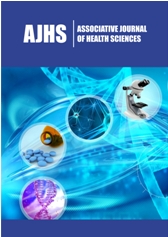- Submissions

Abstract
Associative Journal of Health Sciences
The Role of Artificial Intelligence in Enhancing Physical Education Curriculum with Real-World Data: A Critical Discourse Analysis
-
Open or CloseRonnell D Dela Rosa1,2,3*, Cindy S De Castro2, Jashrell John B Ordoña4 and Radon
Toni B Caragay5
1St Paul University, College of Nursing and Allied Health Sciences, Manila City, Philippines
2The Manila Times College of Subic, Philippines, School of Nursing, Olongapo City, Philippines
3St Dominic College of Asia, School of Nursing and Allied Health Sciences, Bacolor, Cavite, Philippines
4Bataan Peninsula State University, College of Arts and Sciences, City of Balanga, Bataan, Philippines
5Bataan Peninsula State University, School of Public Health and Community Development, City of Balanga, Bataan, Philippines
*Corresponding author:Ronnell D. Dela Rosa, St Paul University, College of Nursing and Allied Health Sciences, Manila City, Philippines
Submission: June 10, 2025;Published: July 10, 2025

ISSN:2690-9707Volume4 Issue 2
Abstract
This study explores the role of artificial intelligence (AI) in enhancing physical education (PE) curricula through the lens of real-world data, employing a critical discourse analysis framework. As educational institutions increasingly adopt AI technologies, the integration of real-time data analytics offers unprecedented opportunities to tailor PE programs to the diverse needs of students. This research examines existing literature and case studies to identify how AI applications, such as predictive analytics and personalized feedback systems, influence student engagement, physical activity levels, and overall health outcomes. The findings highlight both the transformative potential of AI in creating adaptive learning environments and the challenges that arise, including issues of equity, access, and the digital divide. Moreover, the analysis critically engages with the discourses surrounding the implementation of AI in education, questioning the implications for teaching practices, student agency, and the future of PE as a discipline. Ultimately, this study aims to provide educators, policymakers, and researchers with insights into effective strategies for integrating AI within PE curricula, ensuring that technological advancements align with educational goals while promoting inclusivity and student well-being. The implications of this research extend beyond physical education, contributing to broader discussions on technology’s role in educational reform and health promotion.
Keywords:Artificial intelligence; Physical education; Curriculum enhancement; Real-world data; Critical discourse analysis; Student engagement; Health outcomes; Educational technology
 a Creative Commons Attribution 4.0 International License. Based on a work at www.crimsonpublishers.com.
Best viewed in
a Creative Commons Attribution 4.0 International License. Based on a work at www.crimsonpublishers.com.
Best viewed in 







.jpg)






























 Editorial Board Registrations
Editorial Board Registrations Submit your Article
Submit your Article Refer a Friend
Refer a Friend Advertise With Us
Advertise With Us
.jpg)






.jpg)














.bmp)
.jpg)
.png)
.jpg)










.jpg)






.png)

.png)



.png)






